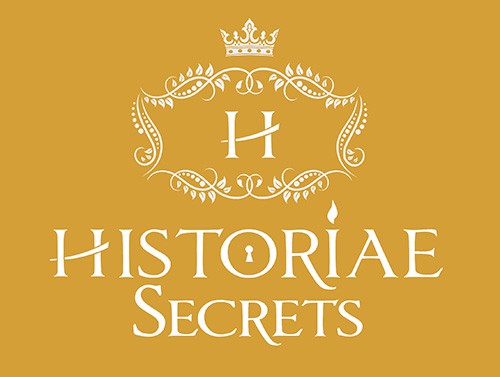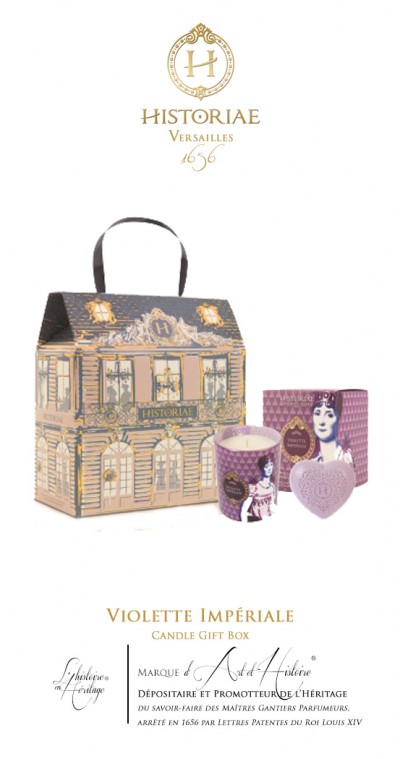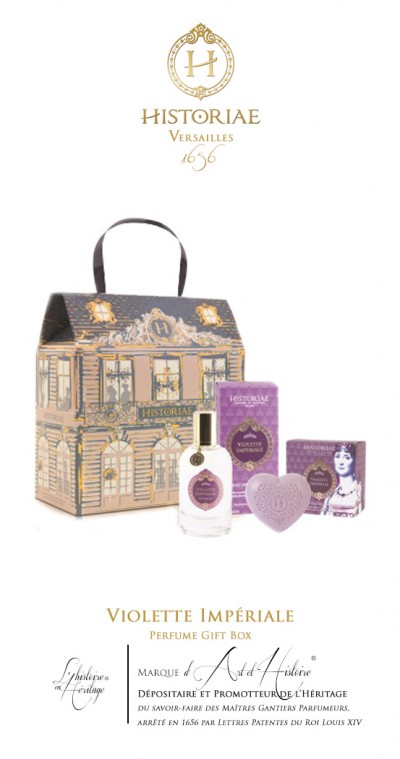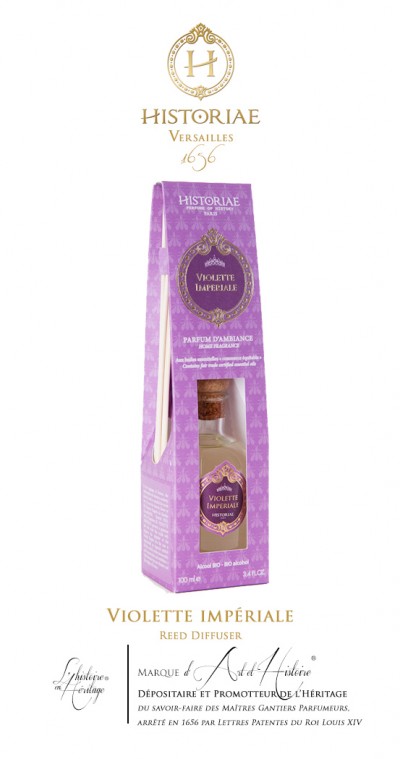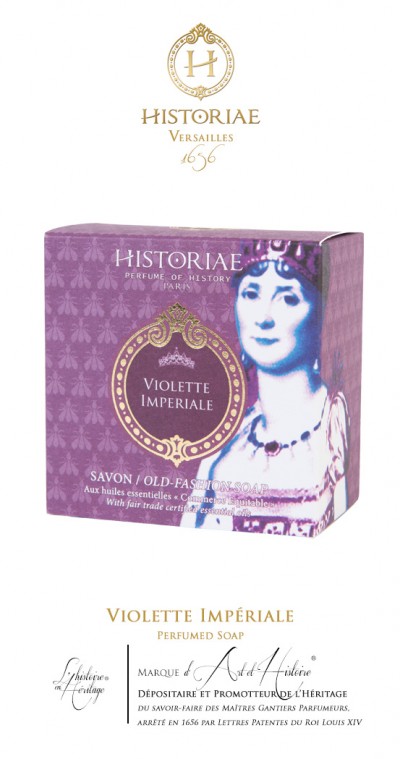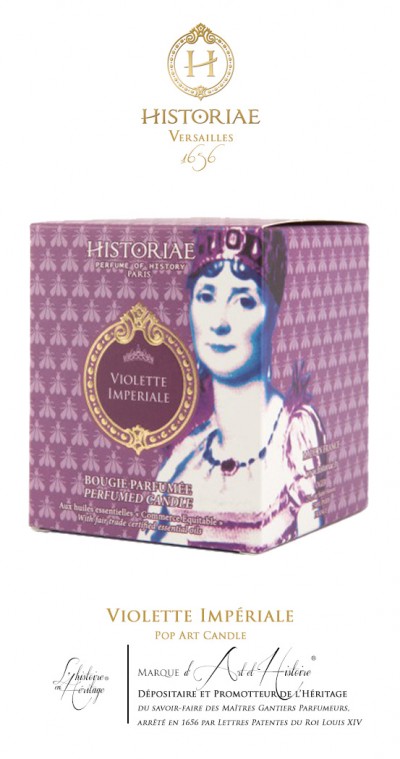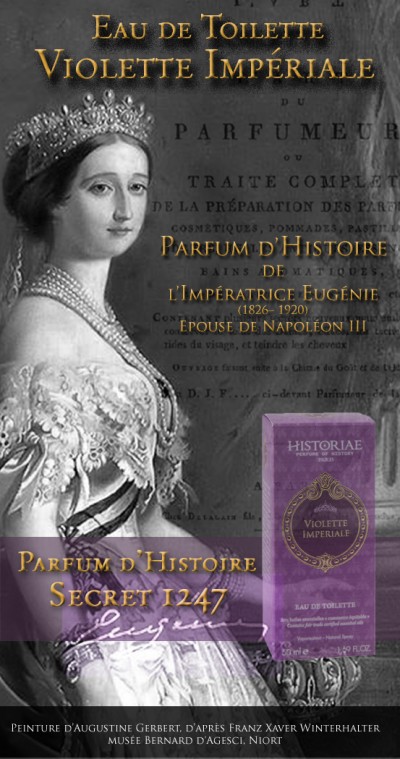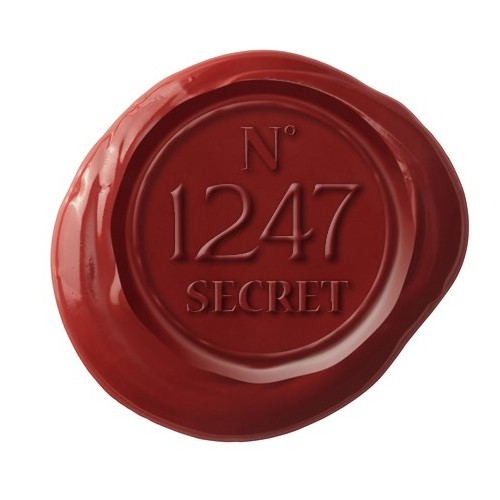
N° 1247
The Heavenly Perfume
When Napoleon III died in 1873, watching over the Imperial Prince, sole heir to the dynasty, became Eugenie’s only objective. His studies completed, Eugenie decided to send him on a voyage across Europe to champion his right to the throne…
But the Imperial Prince sought his legitimacy in military glory, and with Queen Victoria’s consent (and in ...
When Napoleon III died in 1873, watching over the Imperial Prince, sole heir to the dynasty, became Eugenie’s only objective. His studies completed, Eugenie decided to send him on a voyage across Europe to champion his right to the throne…
But the Imperial Prince sought his legitimacy in military glory, and with Queen Victoria’s consent (and in spite of his mother’s supplications), he entered the Royal Horse Artillery, which at that time was currently waging war against the Zulu people in South Africa. On the 29th February 1879, the 23-year-old officer boards the Danube, a large riverboat, at Southampton.
He never saw the Empress again. On the 26th March, after twenty-seven days on the water, he reaches the Cape. On the 3rd April, he disembarks at Durban. On the 19th, he arrives at Pietermaritzburg. On the 29th, he settles in Dundee.
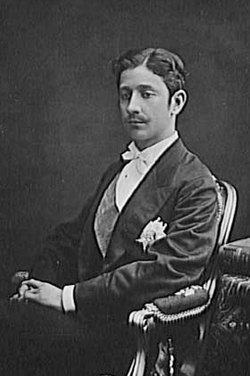
A few months later, on the 1st June 1879, he embarks on a mission into the bush with a dozen men. At approximately two in the afternoon, the small group stopped to lunch. It seemed like a calm spot. The officers lingered and were suddenly attacked by a group of Zulu warriors who had caught them off-guard from their hiding place in the savannah. Overcome with panic, the English jumped onto their horses and fled without firing a single shot, abandoning Prince Louis, who only had his revolver to defend himself. He held out for a few desperate minutes before a javelin pierced his stomach and another stopped his right eye. The Prince collapsed and the Zulus put an end to his misery.
The following day, a group of Englishmen set out to find the body of the Imperial prince. They found the body mutilated with 17 spear-wounds. They took him back to Durban where he was placed on a boat making for England.
Witnesses claimed that upon hearing the death of her son, the Empress Eugenie ‘let out a horrible cry, then collapsed, as though in a daze…’ For months on end, she was consumed by a dreadful despair.
The Violet Fragrances of Immortal Love
In April 1880, she decided to visit South Africa to spend the first anniversary of her son’s death at the exact place the Zulus had killed him, right in the bush…
However, for several weeks the expedition turned in circles in the bush without finding the site of the attack. After fifty nights sleeping in a tent, cast into the most profound doubt, she decided to return to England and spent her final night in the bush crying. In the small hours of the morning, while the group was busy dismantling the campsite, the Empress Eugenie felt a sudden spurt of uncontrollable intuition. She quickly got to her feet and, seizing hold of an axe, she went into the bush, followed by her flabbergasted companions…
Walking at marching speed for hours, without restraint or pause, driven solely by her intuition, slicing through creepers and stumbling, she advanced determinedly, guided by the scent of a violet. All of a sudden, her companions heard her cry triumphantly: ‘This is the place!’
Dumbstruck, they approached and noticed that Eugenie had found a pile of stones in the form of a pyramid. The Empress fell to her knees and cried.
At Eugenie’s request, Sir Evelyn Wood and his companions retreated one hundred metres and set up camp, while the Empress spent the night alone, on her knees, crying next to the stone pyramid in front of which she had lit candles.
Yet, at dawn, a strange thing happened: although there was not a single breath of wind, the Empress suddenly saw the flame of the candles gutter as though someone had tried to blow them out. Stirred, she addressed her dead son: ‘Is it you here? Do you want me to leave?’ The flames then quickly expired, and Eugenie left to rejoin her companions, trembling.
She explained to Sir Evelyn Wood that, as they were about to leave the camp to make their way back to Dundee, in the most extreme distress, she was suddenly beset by an extraordinary and overpowering scent of violets. ‘That perfume,’ she told him, ‘surrounded me and assailed me with such violence that I thought I might faint. Oh, you probably do not know, my son had a real passion for that scent. He made abundant use of it for his toilet. It seemed like a sign to me. And I followed that scent blindly without doubting for an instant that it would lead me to the place where Louis fell.’
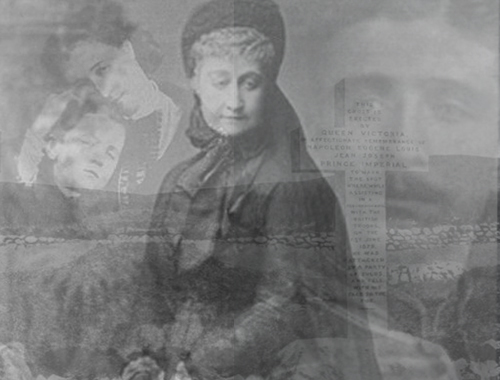
The memorial to the Imperial Prince Louis Napoleon exists to this day in the heart of Zululand. It is to be found approximately 70km east of Dundee, near the village of Ukwekwe. A low wall of large stones surrounds a bit of earth where the tombstone stands and the cross that Queen Victoria had erected in homage to her ‘poor and dear prince.’
Bibliography
Breton Guy et Pauwels Louis, Histoire Magiques de l'Histoire de France, Paris : Omnibus, 1999
Iconography
Prince impérial : http://www.napoleon.org/histoire-des-2-empires/dossiers-thematiques/le-prince-imperial-1856-1879/
Produits associés au Secret "Parfum d'Aet et d'Histoire "Violette Impériale""
-
20,00€
Violette Impériale - Candle Gift Box Violette Impériale - Candle Gift Box
reinterpreted Scents of History Paris, June 1rst 1879 Gift box Castle with handle (20x18x9) contains perfumed soap Violette Imperiale 100g + Pop Art Candle Violette Imperiale 190g. reinterpreted Scents of History Paris, June 1rst 1879 Gift box Castle with handle (20x18x9) contains perfumed soap...
-
Violette Impériale - Perfume Gift Box Violette Impériale - Perfume Gift Box
reinterpreted Perfume of History Paris, June 1rst 1879Gift box Castle with handle (20x18x9cm) contains perfumed soap Violette Imperiale 100g et Eau de Parfum spray large Violette Impériale. reinterpreted Perfume of History Paris, June 1rst 1879Gift box Castle with handle (20x18x9cm) contains perfumed soap...
Not available -
15,00€
Violette Impériale - Reed Diffuser (Sticks) Violette Impériale - Reed Diffuser (Sticks)
reinterpreted Scent of History Paris, June 1rst 1879 Reed Diffuser, fair trade essential oils based, Bio Alcool with no glycol ether. 100ml perfumed bottle. reinterpreted Scent of History Paris, June 1rst 1879 Reed Diffuser, fair trade essential oils based, Bio Alcool...
-
Violette Impériale - Perfumed Soap Violette Impériale - Perfumed Soap
reinterpreted Scent of History Paris, June 1rst 1879Perfumed Soap 100g coconut butter and white clay based. reinterpreted Scent of History Paris, June 1rst 1879Perfumed Soap 100g coconut butter and white clay based.
Not available -
10,00€
Violette Impériale - Pop Art Candle Violette Impériale - Pop Art Candle
reinterpreted Scents of History Paris, June 1rst 1879Perfumed Candle 190g (~50 hours). Vegetable wax based. Cotton wick. reinterpreted Scents of History Paris, June 1rst 1879Perfumed Candle 190g (~50 hours). Vegetable wax based. Cotton wick.
-
Violette Impériale - Eau de toilette Violette Impériale - Eau de toilette
reinterpreted Perfume of History Paris, June 1rst 1879 Imperial Violet is an eau de toilette created as a homage to the love that Empress Eugenie, wife of Napoleon III, had for her son, of which the violet was the secret symbol.The Violet enjoyed two long periods of glory during the nineteenth century, both of which were associated with the Empresses of... reinterpreted Perfume of History Paris, June 1rst 1879 Imperial Violet is an eau de toilette created as a homage to...
Chercher par thème
-
HUNT FOR Replicas and Objects of History
-
The "Historical Figures" Collection
-
Objects of History of Great Writers
- Objects and Products of History of Honoré de BALZAC
- Objects of History of MARCEL PROUST
- Objects and Products of History of ALEXANDRE DUMAS PÈRE
- Objects and Products of History of ARTHUR RIMBAUD
- Objects and Products of History of VICTOR HUGO
- Objects and Products of History of GUY DE MAUPASSANT
- Objects and Products of History of OSCAR WILDE
- Objects and Products of History of CHARLES BAUDELAIRE
- Objects and Products of History of JULES VERNE
- Objects and Products of History of GUSTAVE FLAUBERT
- Objets et Produits d'Histoire de JEAN COCTEAU
- Objets et Produits d'Histoire de CHAROTTE BRONTE
- Objets et Produits d'Histoire de LEWIS CAROLL
- Objects and Products of History of MOLIERE
-
Objects of History of Great Painters
- Objects and Products of History of ELISABETH VIGÉE LEBRUN
- Objects and Products of History of FRANÇOIS GÉRARD
- Objects and Products of History of CLAUDE MONET
- Objects and Products of History of HECTOR VIGER
- Objects and Products of History of MARTIN VAN MEYTENS
- Objects and Products of History of FRANZ XAVIER WINTERHALTER
- Objects and Products of History of VINCENT VAN GOGH
- Objects of History of Princes, Kings & Emperors
-
Objects of History of Princesses, Queens & Empresses
- Objects and Products of History of MARIE-ANTOINETTE
- Objects and Products of History of JOSÉPHINE DE BEAUHARNAIS
- Objects and Products of History of EMPRESS EUGÉNIE
- Objects and Products of History of ELISE DE BEAUHARNAIS
- Objects and Products of History of LAETITIA BONAPARTE
- Objects and Products of History of HORTENSE DE BEAUHARNAIS
- Objects and Products of History of PAULINE BONAPARTE
- Objects and Products of History of the COUNTESS OF PRESLE
- Objects and Products of History of Marquise of CAUMONT
- Objects and Products of History of Madame Elisabeth
- Objects and Products of History of ELEONORE VERGEOT
- Objects of History of Great Photographers
- Objects of History of Great Perfumers
- Objects of History of Immortal Artists
- Objects of History of Great Gastronomes
- Objects of History of Great Scientists
- Objects of History of Great Gardeners
-
Objects of History of Great Writers
- The "Arts and Crafts of History" Collection
- The "Famous Houses and Historical Shops" Collection
- The "Ancient and Always Existing Brands" Collection
-
The "Historical Figures" Collection
-
HUNT AFTER Hidden Secrets of History
-
Secrets of GREAT WRITERS
- Secrets of Honoré de Balzac
- Secrets of Marcel Proust
- Secrets of Alexandre Dumas Père
- Secrets of Arthur Rimbaud
- Secrets of Vicotr Hugo
- Secrets of Guy de Maupassant
- Secrets of Oscar Wilde
- Secrets of Charles Baudelaire
- Secrets of Jules Vernes
- Secrets of Jean Cocteau
- Secrets of Gustave Flaubert
- Secrets of Lewis Caroll
- Secrets of Charlotte Brontë
- Secrets of Molière
- Secrets of GREAT PAINTERS
- Secrets of PRINCES, KINGS & EMPERORS
-
Secrets of PRINCESSES, QUEENS & EMPRESSES
- Secrets of Marie-Antoinette
- Secrets of Joséphine de Beauharnais
- Secrets of Empress Eugénie
- Secrets of Elise de Beauharnais
- Secrets of Laetitia Bonaparte
- Secrets of Hortense de Beauharnais
- Secrets of Pauline Bonaparte
- Secrets of Eléonore de Vergeot
- Secrets of the Countess of Presle
- Secrets of Madame Elisabeth
- Secrets of the Marquise de Caumont
- Secrets of GREAT PHOTOGRAPHERS
- Secrets of GREAT PERFUMERS
- Secrets of IMMORTAL ARTISTS
- Secrets of GREAT GASTRONOMES
- Secrets of GREAT SCIENTISTS
- Secrets of Great Gardeners
-
Secrets of GREAT WRITERS
- HUNT AROUND Hidden and Famous Places of History
Wishlist
Top sellers
-

Jardin le Nôtre - Eau de Parfum
Reinterpreted Perfume Of History In order to celebrate the fourth...
10,00€ -

Bouquet du Trianon - Eau de Toilette
Reinterpreted Perfume Of History Versailles, 15th of August 1774 Art...
59,00€ -

Orangerie du Roy - Eau de Toilette
reinterpreted Perfumes of History Versailles, September 1rst 1689...
59,00€ -

Rose de France - Perfumed Soap
reinterpreted Scents of History Rose de France plunges us into the...
6,50€


